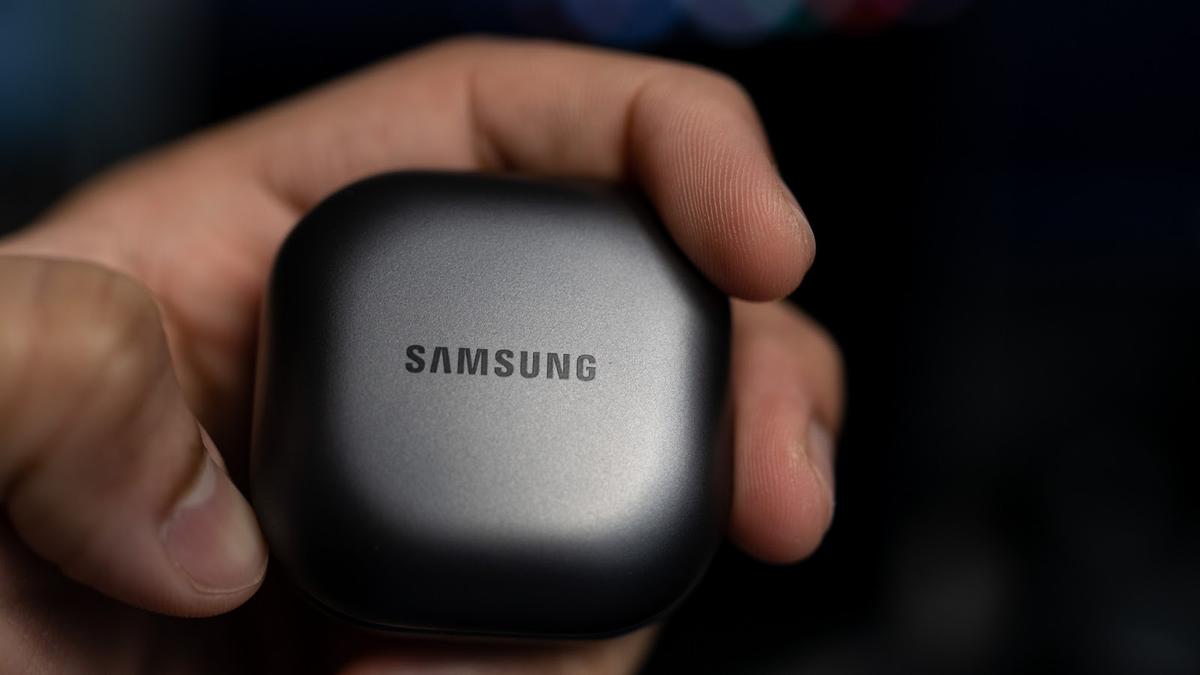Samsung’s mid-range TWS IEMs offer excellent lifestyle features, but the fatiguing treble throws a spanner in the works.
- Excellent battery case that is pocket-friendly
- Very comfortable to wear for longer periods
- Exceptional microphone performance
- Galaxy Wearable app has many smart features
- ANC works well to filter out low-frequency noises
- Punchy sub-bass with good rumble
- Easy pairing with Samsung devices
- Slippery, smudge and scratch-prone shells
- Thin midrange
- Sibilant and sharp treble
- Poor staging, imaging
- Poor resolution, everything sounds compressed
- ANC can’t filter out high-frequency noises as well
- Needs a Samsung phone or tablet to get the most out of them
Where to Buy
Introduction
Since the acquisition of AKG/Harman in 2016, Samsung has offered a line of competently tuned IEMs thanks to AKG’s involvement. Many of these IEMs have taken the Harman target as the baseline while tweaking some aspects to differentiate between models.
The Galaxy Buds2 arrive as the successor to the original Galaxy Buds, adding ANC, better mics, a completely new design, and fast pairing to the mix. The driver setup has also been updated, with the new model sporting dual-dynamic drivers instead of only one.
Do all these changes offer meaningful improvements in the sound and UX to justify the noticeable price increase? Let’s find out.
Case ⓘ
Battery ⓘ
- Battery Life: 15
- Connector: USB Type-C
- Wireless Charging: Yes
- Battery Capacity: Not specified
Battery life is above average given the TWS landscape, with the case holding 15 hours of extra charge. This takes the total battery life to about 20 hours (with ANC on). I have to charge the buds once a week.
Along with the usual type-C charging, the Buds2 also support Qi wireless charging and can even be charged via reverse wireless charging with compatible phones.
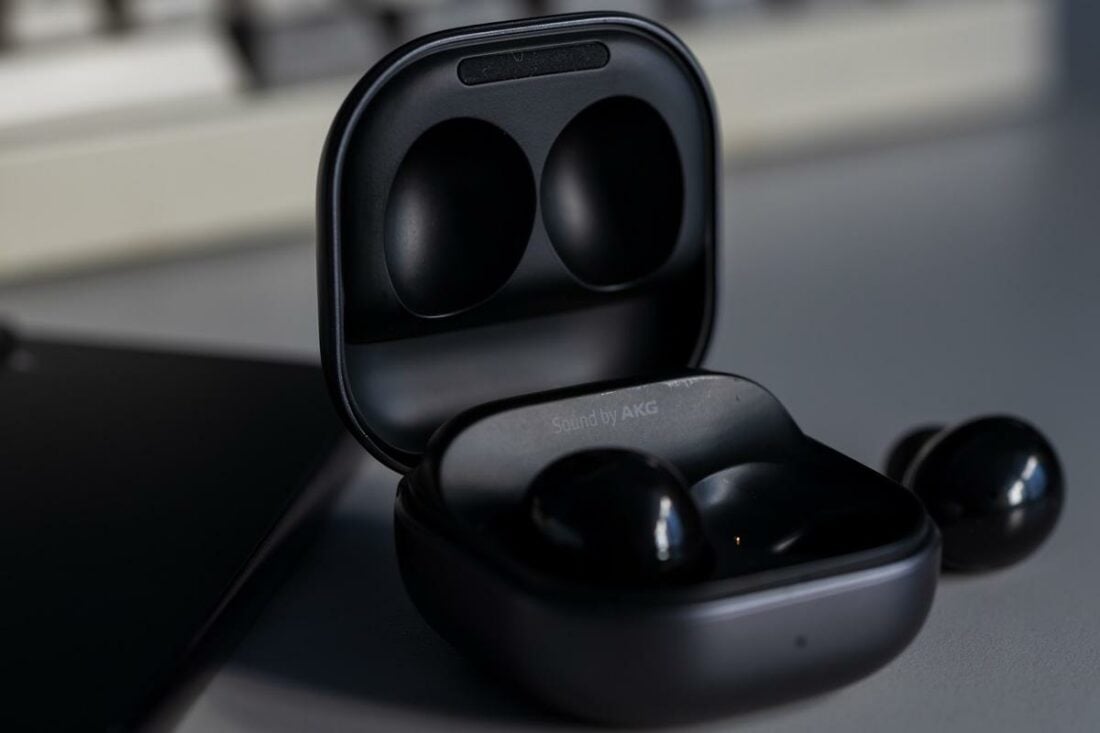
UX ⓘ
- Can be opened easily with one hand: Yes
- Pass the shake test: Yes
- Light Indicators: Shows estimated battery life left and shows charging indicator
The case can be opened using one hand, and the entire mechanism is surprisingly smooth. The earbuds are magnetically secured to the charging base. Removal is fairly easy with just one hand.
The LED on the front shows the battery level of the case while the LED inside the case indicates the battery life of the IEMs.
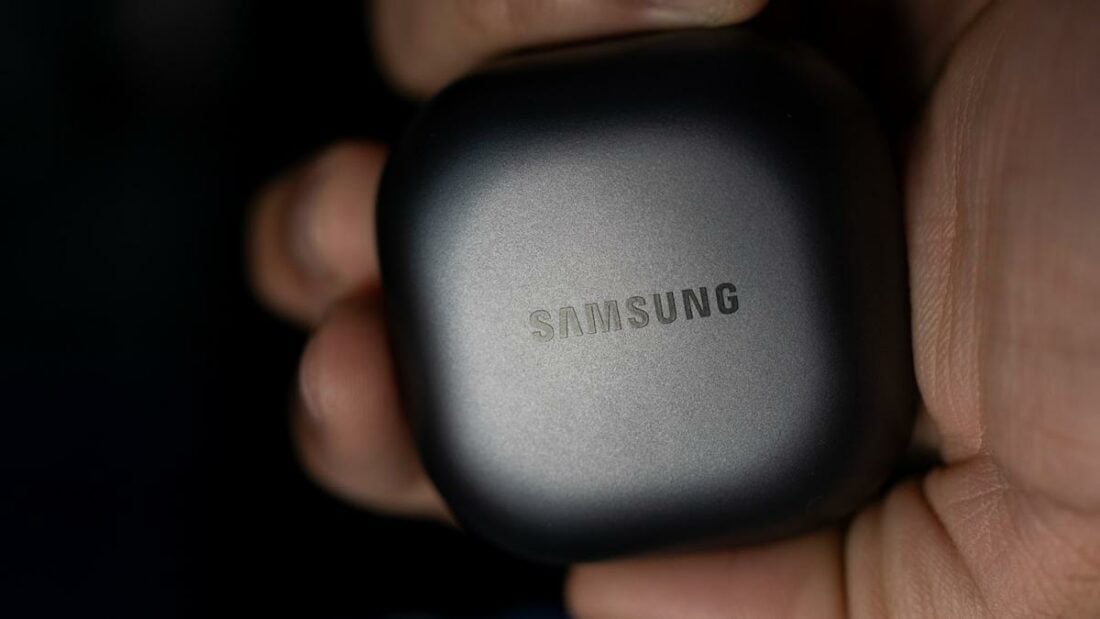
Design ⓘ
- Shape of the case: Square
- Material: Matte plastic
- Build Quality: Premium
The carry case of the Galaxy Buds2 is one of the best in terms of ergonomics and overall ease of use. The design is sleek, it holds enough charge without adding bulk, and the hinge mechanism is buttery smooth.
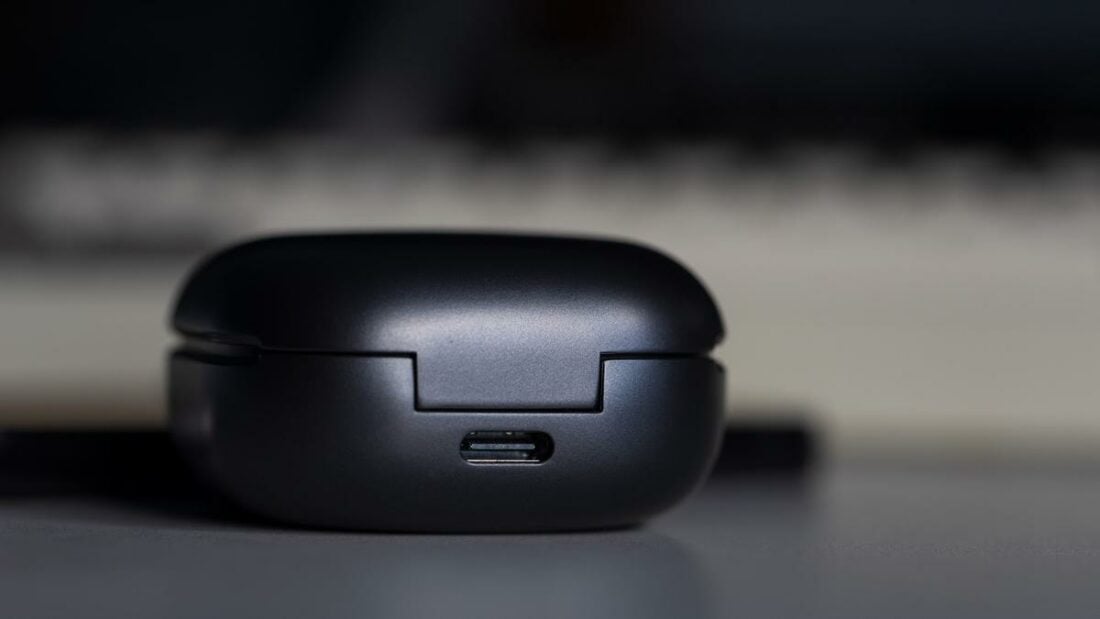
Portability ⓘ
- Weight: 41.2g (case only), 51.2g (with earbuds)
- Volume: 5 cm x 5 cm x 2.8 cm = 70 cm cu
- Portability: Good
The small square profile makes the Galaxy Buds2 case very easy to carry around.
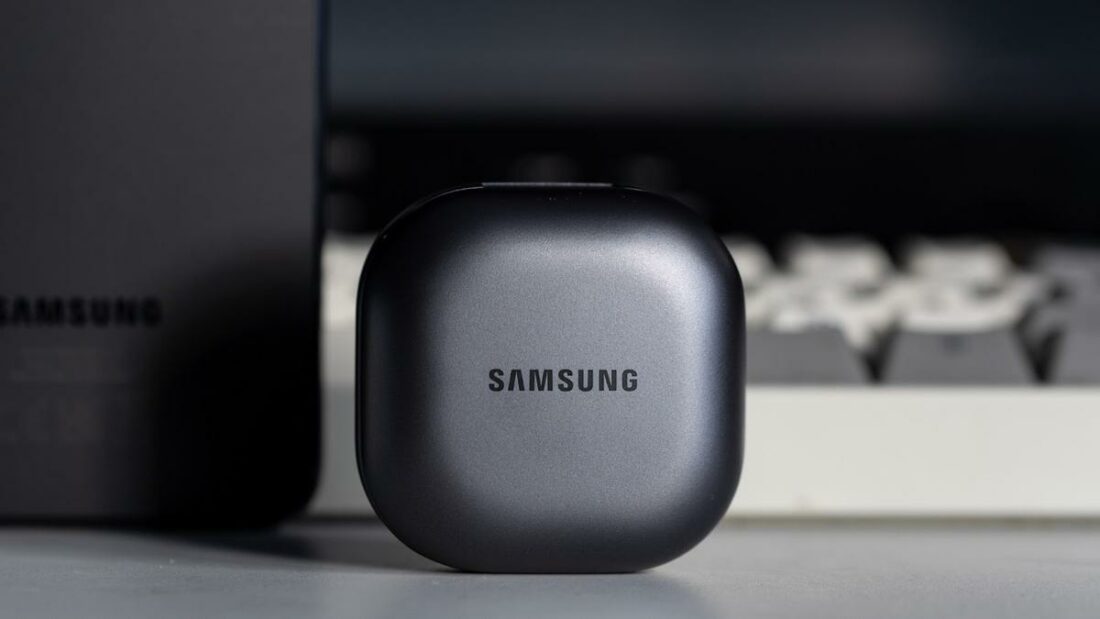
Earbuds ⓘ
Battery ⓘ
- Battery Life: 5 hrs (with ANC), 7.5 hrs (without ANC)
- Charge Time (10 mins): 85 mins playback time
The earbuds last about 5 hours before they run dry (with ANC on). For extra battery life, you can turn off the ANC and get a total of 7.5 hrs on a single charge.
The Galaxy Buds2 need about 1.5 hours to be fully charged, but you can get 85 minutes of playback time with just 10 minutes of charge.
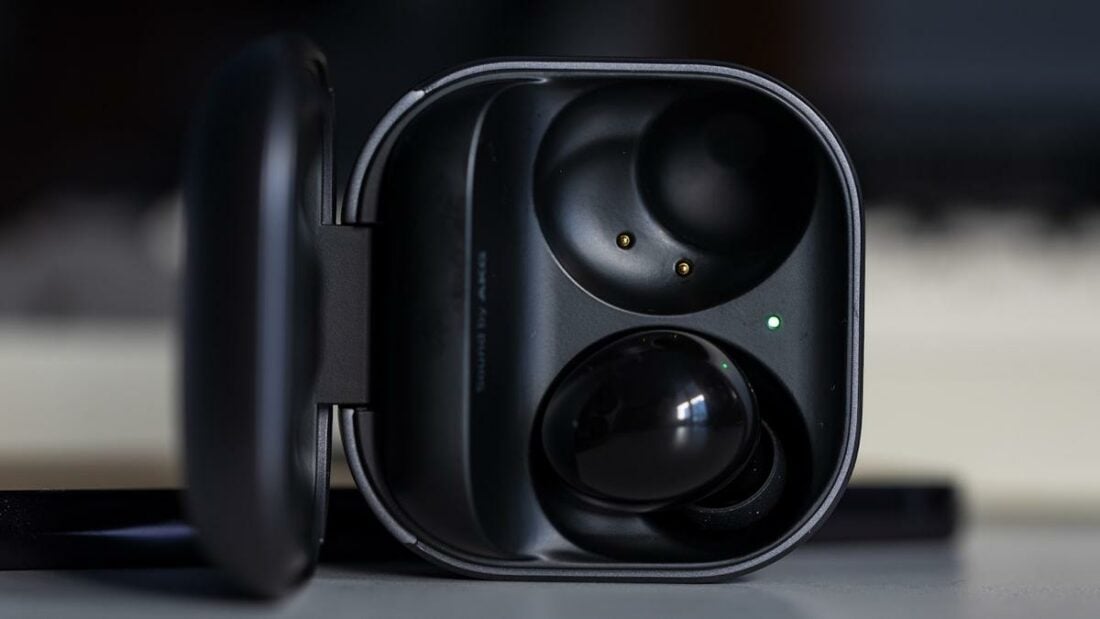
UX ⓘ
- Control Mechanism: Touch
- Touch Accuracy: Average
- Control Symmetry on both earbuds: No, individual setup for each earbud
- Mono Use: Yes, both sides
The circular faceplate acts as a touch-sensitive panel to control various aspects of the IEMs. Touch accuracy is average, with accidental touches being registered at times while adjusting the IEMs.

Design ⓘ
- Profile: Low
- Material: Glossy plastic
- Comfort: Outstanding
- Fit: Outstanding
The Buds2 have a very generic design. They are meant to disappear while wearing and not stand out. They serve that purpose at the cost of character. The glossy surface also readily picks up smudges and lint and shows scratches over time.
The nozzle is short, so not all aftermarket tips will work. The Spinfit CP1025 tips work well for me as an alternative to the stock tips.
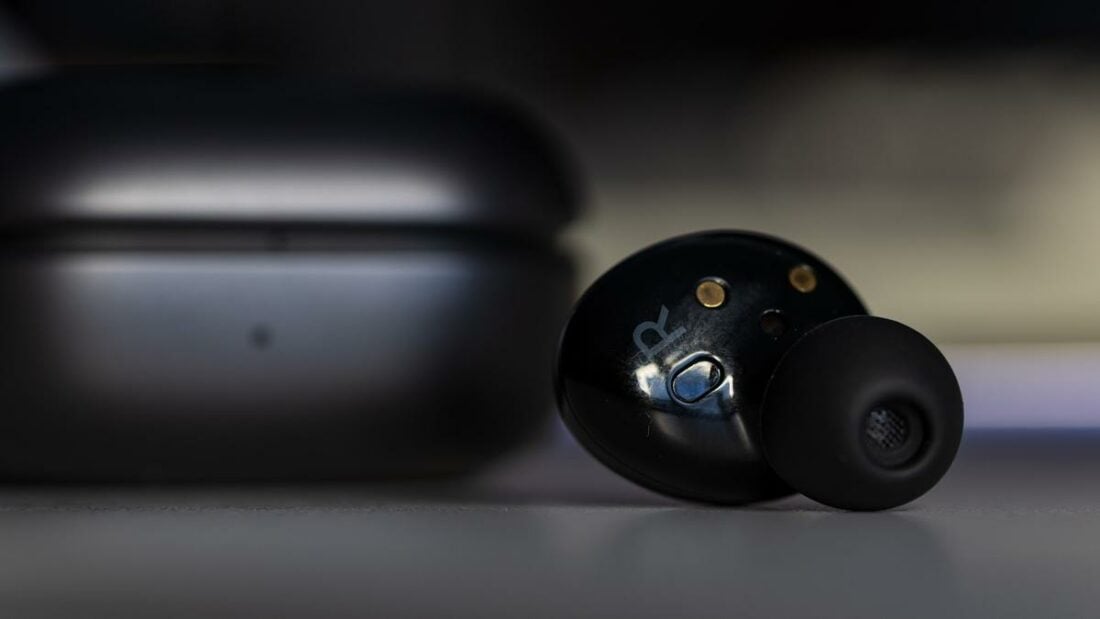
The IR sensor for wear detection and interfaces for charging are alongside another vent on the inner side of the IEM. There is another mic at the back for ANC.
The top surface has a capacitive touch sensor that can be assigned various features and controls.
Mic ⓘ
- Noise Cancellation: Good
- Voice Pick-up: Outstanding
The mic has excellent voice pickup, even in crowded places. Samsung uses three different microphones alongside a Voice Processing Unit (VPU) that isolates and enhances human voice while suppressing surrounding noise. It works really well, as you can hear from the mic demos. Wind noise is not canceled as efficiently, but that’s a challenge for any microphone out there.
Mic demo
Sound ⓘ
- Driver: Dual dynamic driver
- Sound Signature: Sub-bass boosted tuning with linear midrange and treble emphasis
- Bass: Good
- Mids: Average
- Treble: Substandard
- Sound Detail: Substandard
The Galaxy Buds2 use two dynamic drivers, one for the bass and mids, and another for the highs. The drivers are also interesting in their design, as the drivers sit on top of each other and the diaphragms fire into a small cabinet. This cabinet then channels the sound into the nozzle of the IEMs.
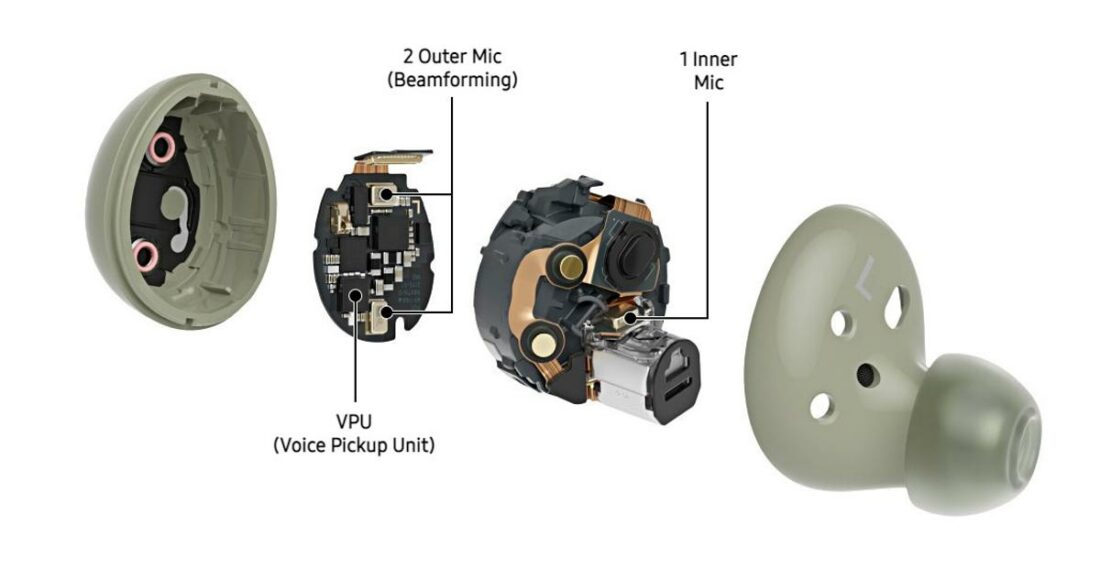
The Galaxy Buds2 have a sub-bass boosted signature that is mostly neutral, apart from a noticeable peak in the treble.
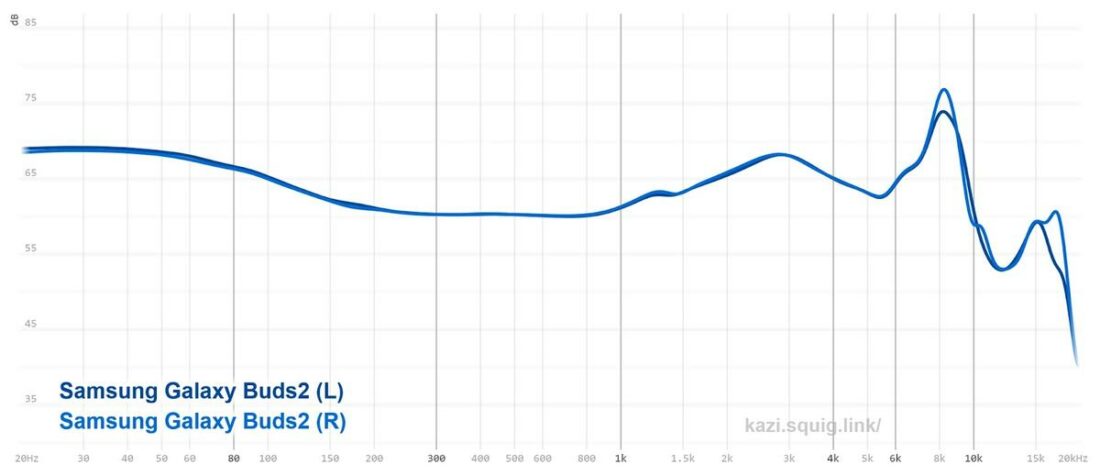
Bass response is mostly sub-bass focused, as the bass starts to rise 150Hz downwards. Sub-bass rumble is noticeable, but mid-bass is sacrificed. This makes snare hits and double-pedals sound thin and artificial. Baritone vocals lack body, as can be heard in Colin Hay’s I Just Don’t Think I’ll Ever Get Over You.
Transients sound mushy, especially in busy passages with many instruments where everything turns into a “blob of sound,” lacking delineation between instruments.
There is zero shoutiness in the mids – bonus points to Samsung for that. Unfortunately, male vocals sound a tad thinner than my preference.
Treble is where things go downhill for the Buds2.
There is a very noticeable mid-treble peak that adds sibilance into the mix. “S” and “t” sound sharpened and get fatiguing after a while. There is not much air, so the entire focus centers around that solitary treble peak.
I believe the two drivers are not working cohesively since the imaging and staging are oddly “crushed” into the center. Everything emanates from the center, and the sense of instruments being placed left and right is not convincing.
With the ANC turned on, the sound signature of the WF-1000XM4 barely changes. The ANC also allows listening to the headphones at lower-than-required volumes.
Connectivity ⓘ
- Audio Codec: SAC (Scalable Audio Codec), AAC, LDAC
- Bluetooth Version: 5.2
- Bluetooth Chip: BES2500ZP
- Auto-connect when: Case lid opened
- Average drop-outs in an hour: 0-3 times
- Multi-point connection: No
Multipoint support is absent, which is a letdown. If you own a supported Samsung device, you can use Samsung’s proprietary “Scalable” codec that allows higher bit-rate and sample rates.
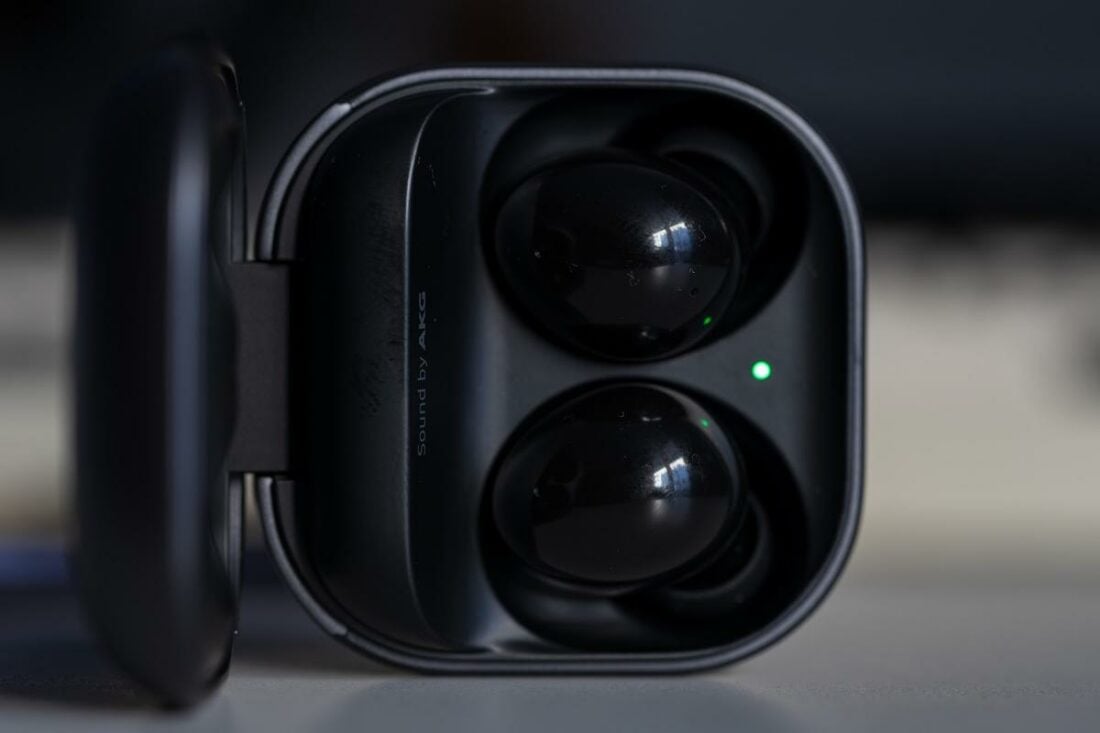
Waterproof ⓘ
- IP Rating: IPX2
The IPX2 rating means that the Samsung Galaxy Buds2 are secure from minor splashes and water sprays “from specific directions”. Given the dubious nature of the specificity of said directions, it’s best to keep the Buds2 away from water and dust.
Software ⓘ
- Available on: Android
- 5 EQ presets, no custom EQ
- 360 Audio
- Auto-Pause: when taken off the ears.
The auto-pause feature works seamlessly. Wear detection is also handy, pausing the music when both buds are taken out, or switching to mono if only one is put into the case.
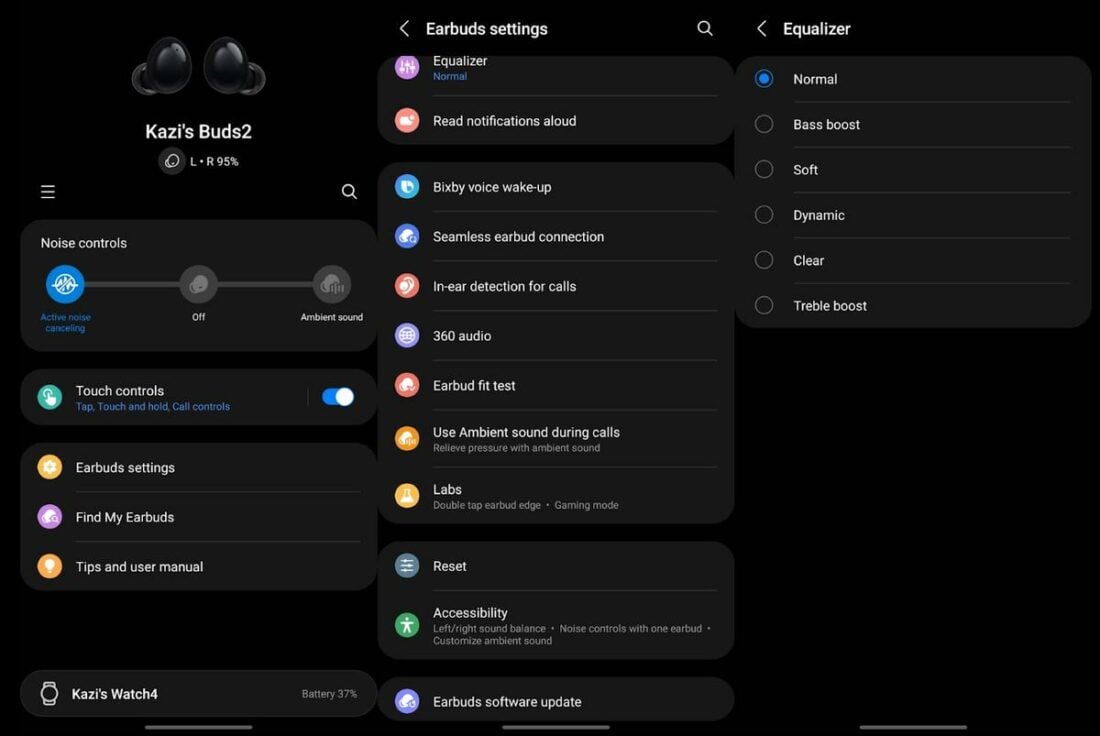
Comparisons
vs Sony WF-1000XM4
The Sony WF-1000XM4 are just as feature-packed as the Galaxy Buds2, and even offer a few additional tricks up their sleeves. The ANC is slightly better, the battery life is longer, and the transparency mode has more granular controls.
Sony also offers better EQ support and some DSP effects. Where the Samsung IEMs pull ahead is overall comfort and case design. The mics are also noticeably better on the Buds2.
In the end, it all boils down to the sound quality, and this is where Sony takes an appreciable lead. The WF-1000XM4 are better sounding than the Galaxy Buds2 in every single aspect. Bass, mids, treble, staging, imaging, overall resolution – the Buds2 just do not compare.
Spending extra on the WF-1000XM4 gets you better sound and more features.
One thing to note on the WF-1000XM4 is the report of potential battery issues, though a new 2.0.0 firmware has reportedly addressed that issue, alongside bringing multipoint support.
Conclusion
Samsung managed to add some meaningful improvements to the Galaxy Buds2. The mic performance is excellent, the ANC is very competitive, and the overall fit and comfort are outstanding.
The Buds2 are also reasonably priced, and the integration with Samsung devices is a bonus.
Too bad that they drop the ball when it comes to sound quality. The bass on these are good if you like sub-bass, but not as satisfying if you prefer some meaty mid-bass. Male vocals sound thinned out, while the treble peak is distractingly sharp.
Add the below-average imaging and staging, and the Buds2 become a hard sell. If you own a Samsung phone, want very good mics for calls, and do not care too much about fidelity, the Buds2 might fit that bill.
I am unimpressed, and it seems that Samsung has gone a step back while the competition has leapfrogged them by a distance. Unfortunate, but it is what it is.
